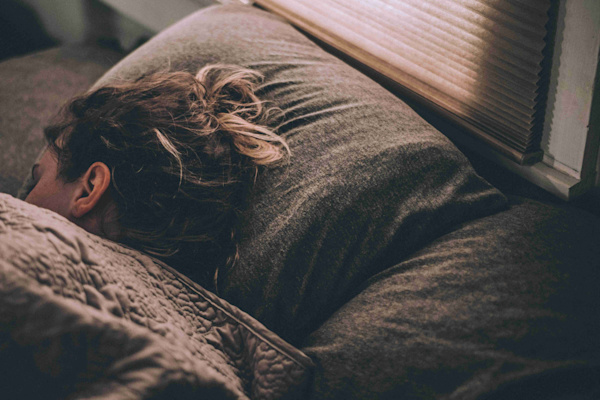
Sleep Tips: Preparing for Daylight Savings
As Daylight Savings approaches, our internal clocks face a challenging adjustment. The shift, whether gaining an hour in the spring or losing an hour in the fall, can disrupt our sleep cycle, leaving us feeling out of sync.
However, with the right preparation, you can minimize the impact on your sleep routine and enjoy sound sleep throughout the transition.
Here are some expert-backed tips to help you navigate this change and enhance sleep quality during Daylight Savings.
1. Manage Caffeine Intake to Support Restful Sleep
Caffeine might give you that afternoon boost, but it could also affect your ability to sleep well at night. If you’re aiming to maintain a healthy sleep cycle, consider cutting back on caffeine after lunchtime. Studies show that caffeine can stay in your system for hours, impacting sleep duration and quality by delaying the body's natural relaxation processes.
Fun Fact: On average, it takes about 5 hours for half of the caffeine in our body to be metabolized, but this can actually range from 1.5 to 9.5 hours depending on the person. So, that late-afternoon coffee might be lingering well into bedtime!
Pro tip: Opt for herbal teas like chamomile or valerian as natural sleep aids that promote relaxation and help you wind down in the evening.
2. Limit Screen Time to Improve Sleep Quality
These days, screens are EVERYWHERE and it’s common, for many of us, to end the day with screen time, scrolling through social media or watching TV. Unfortunately, the blue light from these devices suppresses melatonin, the hormone responsible for helping us sleep better. This can make falling asleep difficult and lead to fragmented sleep.
To maintain proper sleep hygiene, try powering down your devices at least an hour before bedtime. Use this time to unwind and prepare your mind and body for restful sleep.
Bonus Tip: Consider replacing your smartphone with a minimalist alarm clock like the Mudita Harmony, designed to reduce blue light exposure and promote healthy sleep habits. This way, you’re less tempted to reach for that phone, when you should be focusing on sleep.
3. Meditate to Promote Restorative Sleep
A major cause of sleep problems during Daylight Savings is the disruption of your circadian rhythm, which may trigger anxiety and restlessness. Evening meditation is a natural way to help your body and mind relax, preparing you for deep, restorative sleep. By incorporating 10–15 minutes of mindfulness or breathing exercises into your bedtime routine, you can reduce stress levels and create a calming sleep environment.
Fun Fact: The Mudita Harmony alarm clock features a Meditation Timer, making it easier to integrate relaxation techniques into your nightly routine.
4. Stick to a Consistent Sleep Schedule
Keeping a consistent sleep schedule is crucial during the Daylight Savings shift. Aim to go to bed and wake up at the same time every day, even on weekends. This consistency helps stabilize your internal clock, making it easier to adjust to time changes and ensuring you wake up refreshed.
Maintaining this routine can improve sleep efficiency and help your body adapt to Daylight Savings faster. A stable bedtime and wake-up time reinforce your body's natural sleep pattern, resulting in better sleep health.
5. Choose Herbal Over Alcohol for Relaxation
Many people enjoy a glass of wine to unwind, but alcohol can interfere with your sleep quality. While it might make you feel drowsy, alcohol is known to fragment sleep and reduce your ability to reach deeper stages of sleep. If you’re looking for natural ways to improve sleep, swap your nightly drink for a soothing cup of herbal tea.
Herbs such as passionflower, valerian, and lemon balm are known for their calming effects, helping you achieve restorative sleep without the side effects of alcohol.
Sleep Hygiene: Your Key to a Smooth Daylight Savings Transition
Preparing for Daylight Savings doesn’t have to be daunting. By focusing on healthy sleep habits, like managing caffeine, reducing screen time, meditating, and maintaining a consistent sleep schedule, you can minimize the disruptions caused by the time change.
Quality sleep is essential for your overall wellness, and investing in better sleep hygiene today will help you wake up refreshed tomorrow.
For those who struggle with sleep problems, tools like Mudita Bell and Mudita Harmony can support your sleep hygiene journey by promoting a serene, distraction-free environment.
Remember, sleep is a cornerstone of well-being.
By preparing ahead of Daylight Savings, you can ensure a smoother transition and enjoy the benefits of sleep year-round.
Related stories

How Mindful Technology Use Improves Sleep
Improve sleep with mindful tech. Discover Mudita's tips to reduce blue light, eliminate disruptions, and set digital boundaries for a peaceful bedtime routine.

How to Sleep Better as You Get Older
Transform your sleep quality as you age with science-backed strategies. Learn natural solutions for better rest and create the perfect bedtime environment.

What Is Sleepmaxxing? The Trend for Your Best Night’s Sleep
Discover Sleepmaxxing, the viral trend elevating sleep into a self-care ritual. Optimize rest with sleep hygiene, tech-free zones, and mindful alarm clocks.
If you'd like to receive the best stories from our blog, keep up to date with our progress and get notified about our product releases and special discounts.